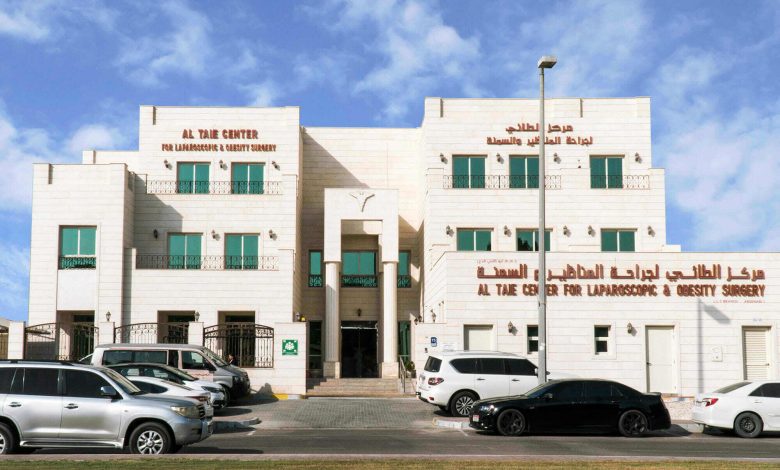
The number of calories you should consume after weight loss surgery depends on several factors, including the type of surgery you had, your individual health and nutritional needs, and your weight loss goals. Weight loss surgeries, such as gastric bypass, sleeve gastrectomy, and adjustable gastric banding (e.g., Lap-Band), significantly reduce the size of your stomach and can impact your ability to eat and digest food.
Starting a weight loss journey can be overwhelming, especially when following through to bariatric surgery, trying to follow dietary guidelines, exercise routines, etc. After the initial recovery period, keeping yourself active and maintaining a dietary plan, is the key to getting to your desired weight loss goal. These changes are also needed so that you can maintain your ideal weight for the rest of your life.
After weight loss surgery, it’s crucial to work closely with a healthcare team, including a registered dietitian or nutritionist, to develop a personalized post-surgery diet plan. Generally, the initial phase after surgery involves a strict, low-calorie diet to promote healing and minimize the risk of complications. This phase typically includes clear liquids and then gradually progresses to pureed and soft foods.
More
Over time, as your body adjusts to the surgery and heals, your healthcare team will help you transition to a more regular diet. The number of calories you should consume during the recovery period and beyond will depend on your specific circumstances, but it is generally lower than the number of calories you consumed before surgery.
In the long term, your calorie intake will be adjusted to support your weight loss and maintenance goals while ensuring you meet your nutritional needs. The exact calorie level will vary from person to person, but it’s important to prioritize protein intake, vitamins, and minerals while monitoring your overall caloric intake.
Ultimately, you should follow the guidance of your healthcare team to determine the appropriate calorie intake for your individual situation. They will consider factors like your age, activity level, and any medical conditions when developing your dietary plan. Staying in close communication with your healthcare providers is essential to achieve the best results and maintain your health after weight loss surgery.
How many calories should I eat after surgery?
Keep in mind that you should always follow your doctor’s recommendations and consult with a healthcare professional for personalized advice, as calorie needs can vary widely depending on factors such as the type of surgery, your age, gender, weight, activity level, and overall health.
After surgery, your body may have increased calorie needs due to the healing process. Adequate nutrition is essential for recovery. Here are some general guidelines:
1.Consult Your Healthcare Team: Always follow your surgeon’s or healthcare provider’s recommendations regarding your diet and calorie intake after surgery. They will consider your specific case and any dietary restrictions or recommendations.
2.Maintenance Calories: In some cases, your calorie needs may not change significantly, especially if you are relatively inactive. In this case, your goal may be to maintain your pre-surgery calorie intake.
3.Increased Calorie Needs: In other cases, your body may require more calories to support the healing process, particularly if you had major surgery or experienced significant trauma. Your healthcare provider will assess your individual needs.
About more
4.Protein Intake: Protein is crucial for tissue repair and recovery. You may need to increase your protein intake to promote healing. Lean sources of protein like poultry, fish, tofu, and legumes can be beneficial.
5.Balanced Diet: Aim for a balanced diet that includes a variety of nutrients. Focus on whole foods like fruits, vegetables, whole grains, lean proteins, and healthy fats.
6.Hydration: Staying hydrated is essential for healing. Drink enough water, but consult your healthcare provider about specific fluid requirements, as excessive fluid intake can sometimes be a concern after certain surgeries.
7.Monitor Weight: Keep an eye on your weight and body composition to ensure you are getting adequate nutrition. If you are losing weight rapidly or not recovering as expected, consult your healthcare provider.
8.Gradual Changes: Make dietary changes gradually and as recommended by your healthcare team. Sudden changes in diet may not be well-tolerated, especially right after surgery.
Remember that your individual calorie needs after surgery will depend on your unique circumstances and should be determined in consultation with your healthcare provider. They can provide specific guidance based on your condition, the type of surgery you had, and your overall health goals.
If you want to achieve weight loss after bariatric surgery, tracking your calories or macros may help you make informed, healthy food choices. However, you will want to keep in mind that food quality is essential to your health goals
Should I count calories after gastric bypass?
It’s important to note that after gastric bypass surgery, your dietary needs and habits will undergo significant changes. Your healthcare team, including your surgeon and registered dietitian, will provide you with personalized guidance on how to manage your diet and monitor your calorie intake. Their recommendations should be followed closely, as they will be tailored to your specific situation.
In many cases, individuals who have undergone gastric bypass surgery do not need to count calories in the same way they did before the surgery. This is because the surgery alters the anatomy of your digestive system, leading to reduced food intake and absorption. However, it is still essential to pay attention to the quality of the foods you eat and ensure you are meeting your nutritional needs.
Calcium shortage and bone disease can be avoided by taking 1,200 to 2,000 milligrams of calcium every day. Take calcium in two to three divided dosages throughout the day to improve absorption, for example, a 500 to 600 mg supplement three times a day. The optimum calcium type is calcium citrate.
Here are some general guidelines to consider:
1.Follow your healthcare team’s recommendations: Your surgeon and dietitian will provide guidance on portion sizes, meal timing, and the types of foods to eat. Follow their advice carefully to ensure a safe and healthy recovery.
2.Focus on nutrient-dense foods: Since you’ll be eating smaller portions, it’s crucial to prioritize nutrient-dense foods that provide essential vitamins and minerals. These may include lean proteins, vegetables, fruits, and whole grains.
3.Listen to your body: Pay attention to your body’s hunger and fullness cues. Eating slowly and mindfully can help you avoid overeating and discomfort.
4.Avoid empty calories: Steer clear of sugary and high-fat foods that provide little nutritional value. These can lead to weight regain and other health issues.
5.Regular follow-up appointments: Continue to meet with your healthcare team for regular check-ups and adjustments to your diet plan as needed.
6.Stay hydrated: Adequate hydration is essential for overall health, but be mindful not to consume liquids immediately before or after meals, as this can lead to discomfort.
About more
You can start eating blended and puréed foods two weeks after surgery. During this time, you can meet your protein needs with liquid supplement beverages or powders that are high in protein more than 20 grams, and low in calories (less than 200 calories).
It’s important to understand that your stomach will be very small after your surgery, less than ¼ cup or roughly the size of an egg. The aperture via which food exits your stomach is likewise quite small. As a result, while trying a new dish, only take two to three drinks or bites at a time and wait 10 minutes before trying again. This will assist you in determining your tolerance and limits. Soft solids take longer to empty from your stomach than liquids.
Most long-term post-op bariatric patients find they need to limit their total caloric intake to less than 1,000 calories per day to maintain their weight-loss. Eat slowly. Foods should be eaten slowly. Since most bariatric patients were fast eaters in their previous life, this can be a difficult behavior to change
While you may not need to count calories meticulously, it’s still important to be mindful of your eating habits and make healthy choices. Your healthcare team will help you navigate the specific dietary guidelines and expectations for your post-gastric bypass journey. Always consult with them for personalized advice based on your unique circumstances





